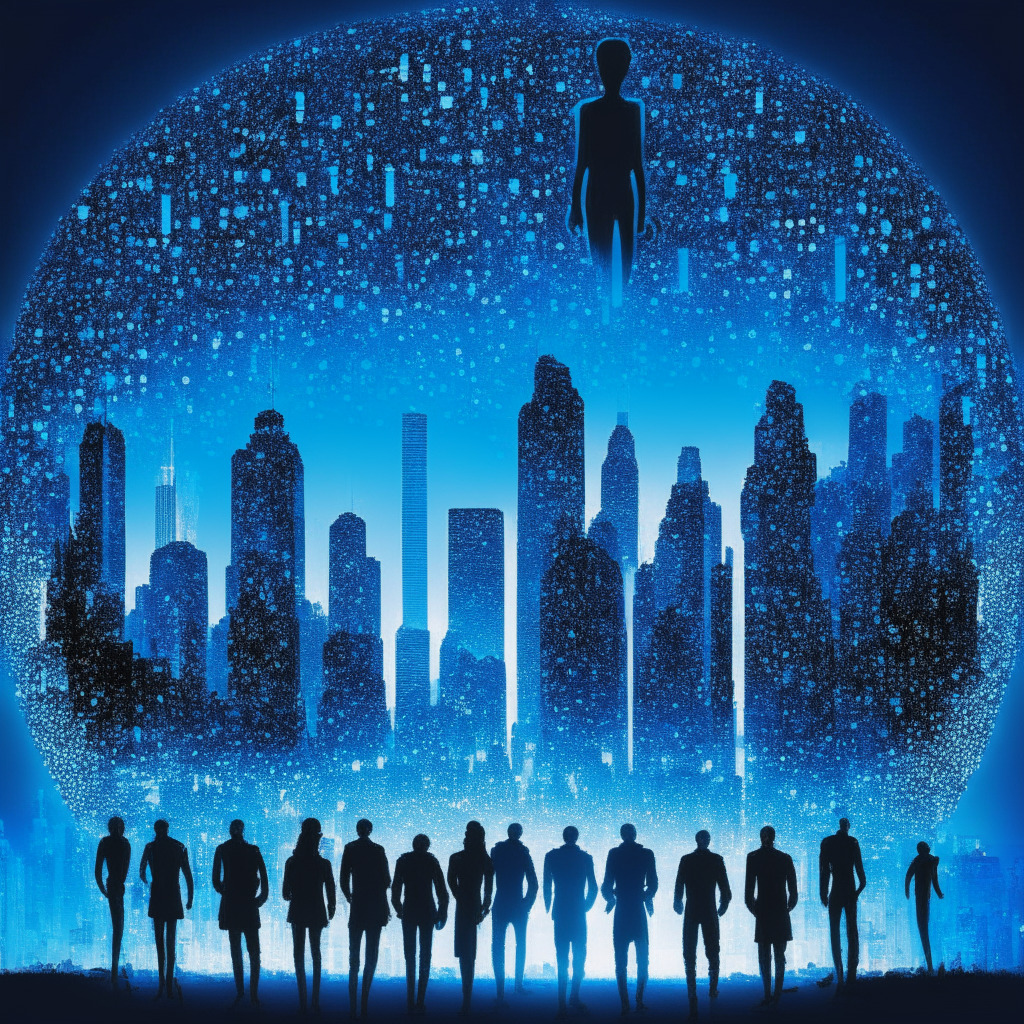The novel crypto undertaking, Worldcoin, has ignited fascination and ire alike—piquing parallels to Facebook’s ill-fated digital currency, Libra/Diem. Its foundational philosophy revolves around utilizing a proof-of-unique-personhood axiom to distinguish real individuals from deep-fake bots — anchoring it in the power struggle between expanding Artificial Intelligence and human beings. From the realms of artificial intelligence, comes Worldcoin, a project co-founded by Sam Altman of Open AI.
The Worldcoin mainnet, that was recently set in motion, witnessed rapid engagement with its token performance rising more than 40% in minutes. The digital coin was airdropped to around 250,000 individuals who had volunteered their iris biometrics through Worldcoin’s chrome orbs. An astonishing fact came light as Altman reported the rates of new participants joining in was one person every eight seconds.
However, to every story, there are sides, and the crypto community apprehensions run high with parallels drawn to Orwellian surveillance inclinations and apprehensions tied to exposure of sensitive biometric data. A stinging skepticism was put forth by David Z. Morris who, while acknowledging Worldcoin’s universal basic income ambitions, couldn’t overlook the near dystopian reality of centralized entities collecting retinal scans and the logistical nightmares inhibiting a ‘universal’ roll-out.
Coming in support are advocates such as Jake Brukhman, from Coinfund, whose firm invested in Worldcoin, predicting the onboarding of billions into cryptocurrency. Altman and his allies challenge privacy concerns, highlighting that no raw human data is stored. The data gathered is instantly converted to unique, non-discoverable hash codes offering no leeway to trace back to the original biometric data.
A more balanced critique was offered by Ethereum founder Vitalik Buterin who, while applauding Worldcoin’s commitment to privacy, pinned down four significant risks, primary of which was the built-in impossibility within a centralized model to fully safeguard people’s data.
The question, however, remains: Why should private business entities don the mantle of basic-income distribution? Dependency of destitute on these companies seems unease-inducing. As the Worldcoin ecosystem expands to integrate decentralized AI applications, the path seems paved with speculative excitement, sure to benefit early token holders, but potentially setting up post-launch investors for financial downfall.
What is clear amid all the skepticism and support is the far-reaching implications of validating human identity in the fast-approaching age of AI. Models like decentralized identity (DID) or decentralized social network protocol (DSNP) are becoming more critical in maintaining human dignity in an increasingly digital age. Every person deserves to demonstrate their authenticity without compromising their most personal data. For some, like performers on platforms like OnlyFans, the stakes of authenticating humanity are high—their livelihoods depend on it.
In the intersection of technology and human life, our challenge is in constructing an infrastructure that respects our intrinsic human dignity, all while nurturing the thriving ecosystem of innovation.
Source: Coindesk




